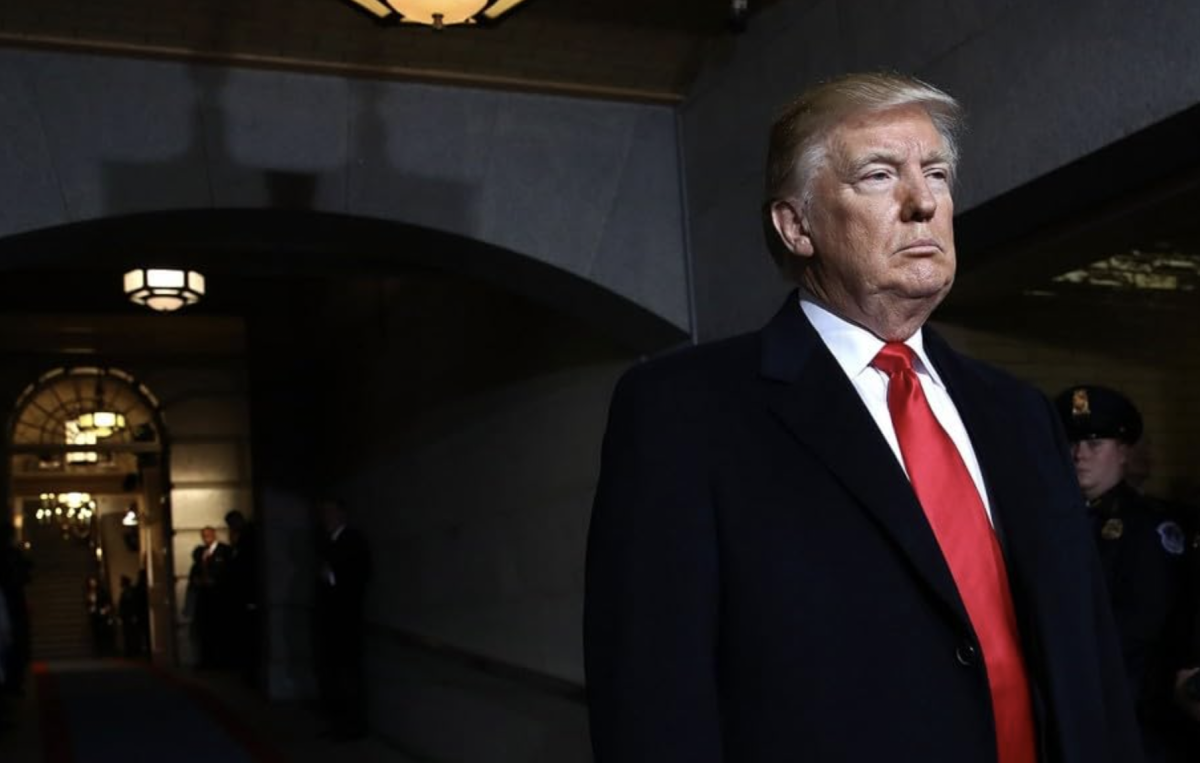
Over 50 students and faculty members attended a panel event Oct. 4, held by the University of Massachusetts Amherst’s University Union, to answer the question, “Is America becoming a fascist state?”
The University Union is a Registered Student Organization that organizes panels and debates on issues considered vital to our time.
The event took place in Herter Hall at 4 p.m. and featured a visiting professor of sociology from Lingnan University in Hong Kong, Peter Baehr, who proposed the initial question. Three UMass Amherst faculty members, Bruce Laurie and Laura Lovett from the history department and Toussaint Losier from Afro-American studies, then responded.
The event began with Baehr saying that there are three ways of viewing the question of fascism in America.
The first way is seeing it as a rhetorical question. The second is to view it as an open question, which requires knowledge about the concept and about the history of fascism to answer. The last is to point out the question as a political declaration.
Baehr described fascism as consisting of “five essential ingredients.” The first is that it is indeed an extreme form of nationalism. The second is fascists are enthusiasts of the supreme state. The third is that fascist nation statism promises to “knock heads together.” The fourth is that fascism is a commitment to purge the social body of impurities. The fifth is that it is paramilitary, which means it provides the military with excitement of violence and capacity to intimidate.
He explained that he sees the attribution of the state as “fascist” as a poisonous way of handling social disagreement and political rivalry.
“We should not use fascism to tarnish Donald Trump. It puts fellow citizens on the side and weakens solidarity,” he said. “Donald Trump is the president of the United States right now, whether you like it or not, and not liking it does not make it any less present.”
He added that it is problematic when celebrities talk up their fans about assassinating the president, or when stage productions of Julius Caesar have a Donald Trump lookalike murdered followed by cheering. He believes that continuing such contempt means that “We are approaching something far more serious that will not end well for anyone.”
Baehr ended his 30-minute segment by saying, “Citizens need to stop showing contempt for each other and start talking to one another and what better place [to do so] than a university?”
“I would further suggest that as well as being concerned about the American state, we should be concerned as well about the state of America,” Baehr added.
Bruce Laurie responded by highlighting two main points. His first point was that Trump’s authoritarian personality, not a fascist one, is what Democrats use to justify his irrational behavior. The second point is that if Trump somehow creates a military crisis, then “all bets are off.”
Toussaint Losier brought a new perspective to the table by discussing mass incarcerations and how this national problem could potentially be the new “military camp.” He noted that there are currently around 2.2 million people in prison.
The last respondent, Laura Lovett, said that before defining what we think fascism is, we must first ask ourselves questions like “What do we think constitutes the state?” and “What do we think constitutes the way in which political participation is possible, and how do we see the silencing of that?”
“I wish they would have been more decisive to answer the question by saying yes or no and to be more clear-cut in that regard. It seemed that a lot of people just wanted to focus on their niche,” Jonathan Phillips, a senior history major, said about the discussion.
Senior computer science major and member of the University Union Jay McMahon said, “I was really happy with the turnout. It definitely filled the room up. I was happy we were able to get a wide range of people, and that’s kind of the whole point of our organization, [which] is to offer very disparate news.”
Senior sociology and psychology double major Sakina Bengali said she enjoyed the objectivity exhibited by the panel.
“The job of an academic is to be objective and let the listener decide their position. I think all speakers did exactly that,” Bengali said.
Afnan Nehela can be reached at [email protected].


















